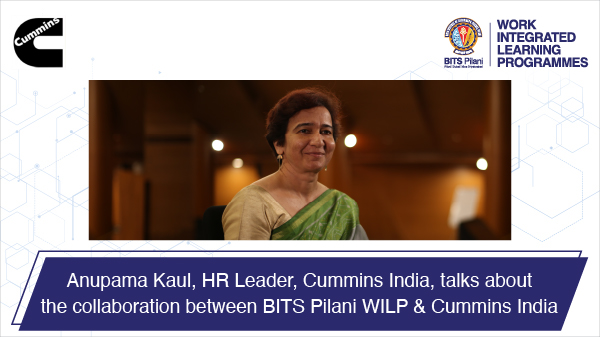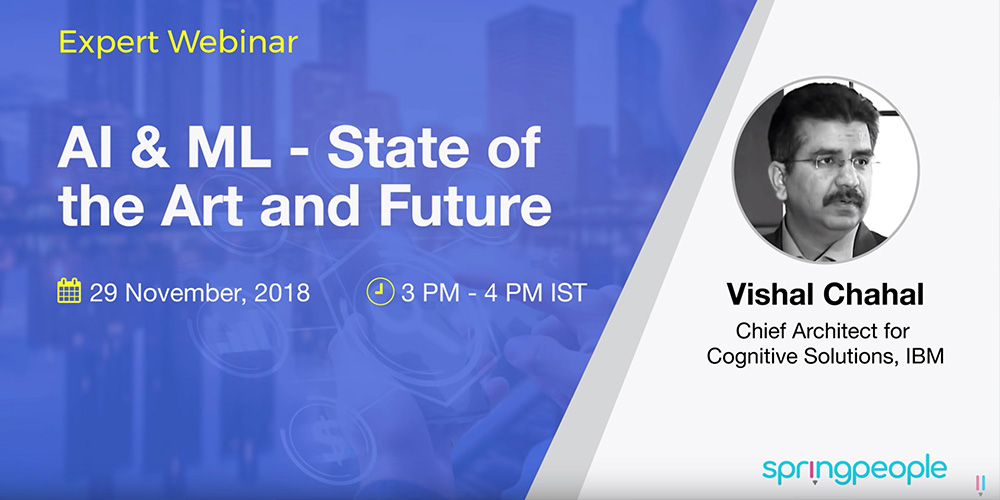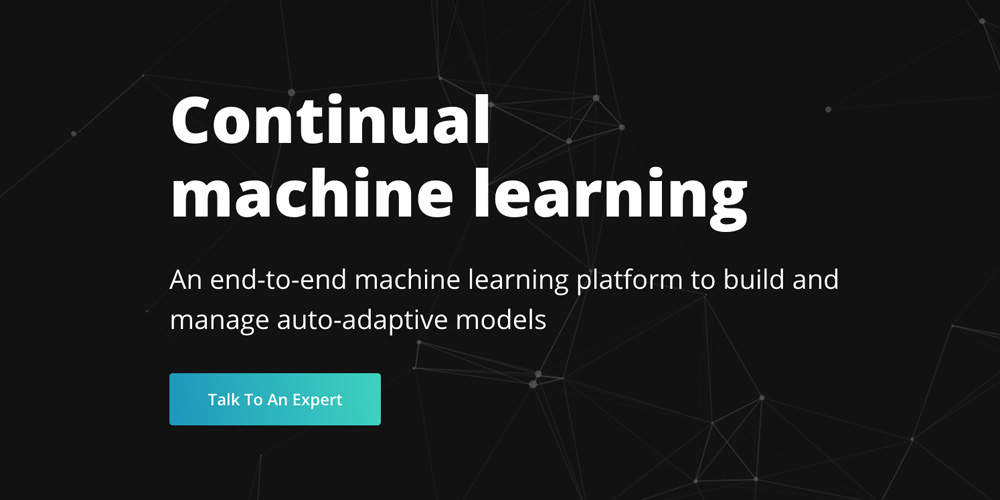Cloud computing to lead India’s digital transformation and growth story
Cloud computing and its adoption is set to be one of the leading contributors to the Indian economy by 2026. Estimates by the National Association of Software and Service Companies value a $380 billion boost to the Indian GDP with 14 million jobs that are expected to be created in the next 5 years. A rising digital population, and increased digitization are likely to be the top factors which will drive this growth. Are you prepared?
M.Tech. Cloud Computing is a four-semester programme and is designed for working professionals to impart them with a thorough knowledge of Big Data, Distributed Computing, Network and Security in Cloud, building Cloud-native applications, Cloud Economics, and more.
M.Tech. Cloud Computing is a BITS Pilani Work Integrated Learning Programme (WILP). BITS Pilani Work Integrated Learning Programmes are UGC approved.
Option to pay fees using an easy EMI with 0% interest and 0 down payment
Programme Highlights
- M.Tech. Cloud Computing is a BITS Pilani Work Integrated Learning Programme (WILP). BITS Pilani Work Integrated Learning Programmes are UGC approved.
- This programme is of 4 semesters and can be pursued only by working professionals. You can pursue the programme without any career break.
- The programme will also enable working professionals to attend contact classes from anywhere over a technology-enabled platform. The contact classes will be conducted mostly on weekends or after business hours.
- The programme makes use of simulation software, open source tools/frameworks and Public Cloud based deployment environments for hands-on labs and assignments.
- The Dissertation (Project Work) in the final semester enables students to apply concepts and techniques learnt during the programme.
- The programme uses a Continuous Evaluation System that assesses the learners over convenient and regular intervals. Such a system provides timely and frequent feedback and helps busy working professionals stay on course with the programme.
- The education delivery methodology is a blend of classroom and experiential learning. Experiential learning consists of lab exercises, assignments, case studies and work-integrated activities.
- Participants who successfully complete the programme will become members of an elite & global community of BITS Pilani Alumni.
- Option to submit fee using easy-EMI with 0% interest and 0 down payment.
Programme Curriculum
Participants need to take at least 12 courses towards coursework, and complete one Project/ Dissertation. The coursework requirement for the programme would consist of a set of core courses and electives. Core courses are compulsory for all participants, while electives can be chosen based on individual learning preferences.
- Introduction to Parallel and Distributed Programming
- Network Fundamentals for Cloud
- Big Data Systems
- Cloud Computing
- Cloud Infrastructure and Systems Software
- Distributed Computing
- Elective 1
- Elective 2
- Elective 3
- Elective 4
- Elective 5
- Elective 6
- Dissertation
- Data Storage Technology and Networks
- Security Fundamentals for Cloud
- Cloud Economics
- API-driven Cloud Native Solutions
- DevOps for Cloud
- Design and Operation of Data Centers
- Data Warehousing
- Introduction to Data Science
- Infrastructure Management
- Stream Processing and Analytics
- Secure Software Engineering
- Scalable Services
- Edge Computing
Choice of Electives is made available to enrolled students at the beginning of each semester. A limited selection of Electives will be offered at the discretion of the Institute.
For detailed programme curriculum, download the brochure.
UGC Approval
BITS Pilani is an Institution of Eminence under UGC (Institution of Eminence Deemed to be Universities) Regulations, 2017. The Work Integrated Learning Programmes (WILP) of BITS Pilani constitutes a unique set of educational offerings for working professionals. WILP are an extension of programmes offered at the BITS Pilani Campuses and are comparable to our regular programmes both in terms of unit/credit requirements as well as academic rigour. In addition, it capitalises and further builds on practical experience of students through high degree of integration, which results not only in upgradation of knowledge, but also in up skilling, and productivity increase. The programme may lead to award of degree, diploma, and certificate in science, technology/engineering, management, and humanities and social sciences. On the recommendation of the Empowered Expert Committee, UGC in its 548th Meeting held on 11.09.20 has approved the continued offering of BITS Pilani’s Work Integrated Learning programmes.
Mode of Learning
The Mode of Learning used in this programme is called - Work Integrated Learning. Internationally, Work Integrated Learning (WIL) is defined as "An educational approach involving three parties - the student, educational institution, and employer organization(s) - consisting of authentic work-focused experiences as an intentional component of the curriculum. Students learn through active engagement in purposeful work tasks, which enable the integration of theory with meaningful practice that is relevant to the students' discipline of study and/or professional development*.
An education model can be considered as WIL if and only if:
- The programs are designed and developed by the institute in collaboration with industry.
- Work-focused experiences form an active part of the curriculum.
- The program structure, pedagogy and assessment enable integration of theory-with relevant practice.
The innovative Work Integrated Learning Programs (WILP) of BITS Pilani are quite aligned with the above definition and requirements. The programs are designed in collaboration with its industry partners, subject matter experts from industry and academia that enable the students to remain relevant in their chosen profession, grow in their career and retain the habit of lifelong learning. The continued availability of workplace related experiences along with the weekly instruction sessions promote integration of theory with practice. An active participation of the organization mentor in the learning process of the student plays a key role. Case studies, simulation exercises, labs and projects further strengthen this integration.
The WILP of BITS Pilani is comparable to its campus-based programs in terms of structure, rigor, instruction, labs, assessment, faculty profile and learning support. The pervasive adoption of technology in all its academic processes makes the same high-quality education of BITS Pilani available to the aspirants at scale with the required flexibility.
Key Benefits of BITS Pilani WILP
1) Can pursue the programme without any career break and along with the job.
2) The programme curriculum is highly relevant to sectors, industries and organisations they work for
3) In addition to the institute, the learning experience of working professionals in the programme is also supported by the employer organisation and Industry Mentors.
4) Effective use of technology to deliver a range of learning interventions at the location of the working professional such as faculty contact sessions, asynchronous learning materials, remote, virtual and cloud labs, Learner support, peer to peer collaboration etc.
5) Contact sessions with faculty take place mostly over weekends or after business hours and are conducted over a technology platform that can be accessed from anywhere.
6) Mid semester and End semester examinations for every semester are conducted mostly at designated examination centres distributed across the country (for details refer to link mode of examinations)
7) Learners can access engaging learning material which includes recorded lectures from BITS Pilani faculty members, course handouts and recorded lab content where applicable.
EXPERIENTIAL LEARNING
The programme emphasises on Experiential Learning that allows learners to apply concepts learnt in the classroom in simulated, and real work situations. This is achieved through:
- Simulation Tools, & Environments: The programme makes use of simulation software, open source tools/frameworks and Public Cloud based deployment environments for hands-on labs and assignments
CONTINUOUS ASSESSMENT
Continuous Assessment includes graded Assignments/ Quizzes, Mid-semester exam, and Comprehensive Exam.
CASE STUDIES AND ASSIGNMENTS
Carefully chosen real-world cases & assignments are both discussed and used as problem-solving exercises during the programme.
DISSERTATION/ PROJECT WORK
The fourth semester offers an opportunity for learners to apply their knowledge gained during the programme to a real-world like complex project. The learner is expected to demonstrate understanding of vital principles learnt across semesters and their ability to successfully apply these concepts.
Industry Talks
The programme features Industry Talks on some of the most exciting developments, and pressing issues faced by businesses in the technology space. Speakers include business leaders, R&D professionals, and academicians from leading technology firms and institutions.
Some of the recent and upcoming sessions include:
|
Sl. No.
|
Title of Tech Talk
|
Date
|
Speaker(s)
|
|---|---|---|---|
| Illustrating Edge AI Techniques and Tools towards Digitally Transformed Cities | April 2023 | Dr. Pethuru Raj, Chief Architect and VP, Edge AI Division, Reliance Jio Platforms | |
| Blockchain as a key component of FinTech | January 2023 | Raam Baranidharan, CTO - BlokTrek | |
| Personalizing the Online Grocery Substitution Experience | February 2022 | Dr. Rahul Ghosh, Senior Director of Data Science, Walmart India Kamiya Motwani, Senior Data Science Manager, Walmart India |
|
| Applying Data Science Technologies in HealthCare | December 2021 | Manisha Mantri, Joint Director, C-DAC, Pune | |
| Financial Risk Modelling using ML Techniques | November 2021 | Mayank Rasu, Guest Faculty at WILP CSIS Department | |
| Enterprise Cloud Transformation Journey | October 2021 | Surendra Tipparaju, Principal Architect Manager, Microsoft Hyderabad | |
| Cyber Threat Intelligence | June 2021 | Nandi Dharma KishoRe H.N., Assistant Vice President - K7 Threat Control Lab | |
| Cellular V2X | May 2021 | Brijesh Unnikrishnan, Principa |
|
| 3D processing and Computation - An Engineering View | May 2021 | Dr. Raghavendra Singh, Directo |
|
| SDLC in the Devops world | April 2021 | Meshach Samuel, Associate VP, HCL | |
| Recent Trends in Database Administration | April, 2021 | Gautam Avarsala Managing Director, dBPro Software Solutions |
|
| Service Assurance in 5G networks: An AI/ML perspective | March, 2021 |
Ashvin Lakshmikantha, Principal Engineer –System Architecture Anand Eswaran, Principal Engineer – System Architecture Cloud Networking Group, Ericsson R&D, Bangalore |
|
| Blockchain:Technology backbone for Digital economy | March, 2021 | Sridhar Vedhanabatla Associate Director, Information Security & Privacy, Gainsight |
Mode Of Examination
Mode of Examinations applicable for students admitted in Batch starting in July 2024 :
Semester 1, 2 and 3 have Mid-Semester Examinations and Comprehensive Examinations for each course. These examinations are mostly scheduled on Friday, Saturday or Sunday. Students need to appear in person for taking the examinations at the institution’s designated examination centres as per the examination schedule, Instructions, rules and guidelines announced before every examination.
Students can take their examination at any of our 23 designated examination centres in India at the following locations:
South Zone: Bangalore, Chennai, Hyderabad, Vijayawada, Visakhapatnam, Kochi, Thiruvananthapuram and Coimbatore.
North Zone: Delhi NCR, Jaipur, Chandigarh, Lucknow and Pilani.
West Zone: Mumbai, Pune, Goa, Ahmedabad, Indore and Nagpur.
East Zone: Kolkata, Bhubaneshwar, Guwahati and Jamshedpur.
In addition to these locations, the Institution also has a designated examination centre in Dubai.
During these semesters, in addition to the above mentioned Mid-Semester and Comprehensive examinations, there will also be Quizzes/Assignments conducted online on the Learning Management System (LMS) as per the course plan in which the students need to participate.
In Semester 4 (Final Semester), the student will be doing Dissertation/Project Work as per the Institution’s guidelines.
Eligibility Criteria
- Employed professionals holding an Integrated First Degree of BITS or its equivalent such as B.E./M.Sc. and relevant exposure to systems disciplines, with at least 60% aggregate marks and minimum one year work experience after the completion of the degree in IT services and products industry, are eligible to apply.
- Minimum one year programming experience in C, Java or an equivalent language in backend systems OR a degree level course in a C/Java Programming
- Experience in Relational Database Management Systems with understanding of data schema, SQL queries and writing programs that access databases.
- It is strongly preferred that professionals have taken the following basic courses:
Computer Organisation and Operating Systems
Computer Networks
Data Structures and Algorithms
Fee Structure
The following fees schedule is applicable for candidates seeking new admission during the academic year 2024-2025.
- Application Fees (one time) : INR 1,500
- Admission Fees (one time) : INR 16,500
- Semester Fees (per semester) : INR 66,750
The one-time Application Fee is to be paid at the time of submitting the Application Form through the Online Application Centre.
Admission Fee (one-time) and Semester Fee (for the First Semester) are to be paid together once admission is offered to the candidate. Thus, a candidate who has been offered admission will have to pay INR 83,250/-. You may choose to make the payment using Netbanking/ Debit Card/ Credit Card through the Online Application Centre. Option to submit fee using easy-EMI with 0% interest and 0 down payment. Click here to learn more.
Semester Fee for subsequent semesters will only be payable later, i.e. at the beginning of those respective semesters.
Any candidate who desires to discontinue from the programme after confirmation of admission & registration for the courses specified in the admit offer letter will forfeit the total amount of fees paid.
For the examination centre at Dubai, in addition to the semester fees, for each semester there will be an examination centre fees of 1000 UAE Dirhams or equivalent per semester out of which 500 UAE Dirhams is to be paid at the time of appearing in Mid-semester examinations at Dubai Centre for that semester and the remaining 500 UAE Dirhams is to be paid at the time of appearing in comprehensive examinations at Dubai centre for that semester.
All the above fees are non-refundable.
Important: For every course in the program institute will recommend textbooks, students would need to procure these textbooks on their own.
How to Apply
- Once you have logged in, you will see a screen showing 4 essential steps to be completed to apply for the programme of your choice.
- Begin by clicking on Step 1 - ‘Fill/ Edit and Submit Application Form’. This will enable you to select the programme of your choice. After you have chosen your programme, you will be asked to fill your details in an online form. You must fill all the details and press ‘Submit’ button given at the bottom of the form.
- Take the next step by clicking on Step 2 - 'Download Application PDF Copy’. This will download a pdf copy of the application form on your computer.
- Now, click on Step 3 - 'Pay Application Fee’ to pay INR 1,500/- using Netbanking/ Debit Card/ Credit Card.
- Take a printout of the downloaded Application Form and note down the Application Form Number displayed on the top-right corner of the first page. This Application Form Number should be referred in all future correspondence with BITS Pilani.
-
In the printout of the downloaded Application Form, you will notice on page no. 3 a section called the Employer Consent Form. Complete the Employer Consent Form. This form needs to be signed and stamped by your organisation’s HR or any other authorised signatory of the company.
Important: In view of work-from-home policies mandated by many organisations, a few candidates may not be able to get the physical forms signed by their HR/ other authorised organisational representative. Such candidates may instead request an email approval to be sent to their official email ID by the HR using the format available through this link.
-
Further on page no. 4 of the printed Application Form is a section called the Mentor Consent Form. The Mentor Consent Form needs to be signed by the Mentor. Click here to know who could be a Mentor.
Important: In view of work-from-home policies mandated by many organisations, a few candidates may not be able to get the physical forms signed by their Mentor. Such candidates may instead request an email approval to be sent to their official email ID by the Mentor using the format available through this link.
- Further on page no. 5 of the downloaded Application Form, is a Checklist of Enclosures/ Attachments.
- Make photocopies of the documents mentioned in this Checklist.
- Applicants are required to self-attest all academic mark sheets and certificates.
- Finally, click on Step 4 - 'Upload & Submit All Required Documents’. This will allow you to upload one-by-one the printed Application Form, Mentor Consent Form, Employer Consent Form, and all mandatory supporting documents and complete the application process. Acceptable file formats for uploading these documents are DOC, DOCX, PDF, ZIP and JPEG.
- Upon receipt of your Application Form and all other enclosures, the Admissions Cell will scrutinise them for completeness, accuracy and eligibility.
- Admission Cell will intimate selected candidates by email within two weeks of submission of application with all supporting documents. The selection status can also be checked by logging in to the Online Application Centre.
Batch Profile
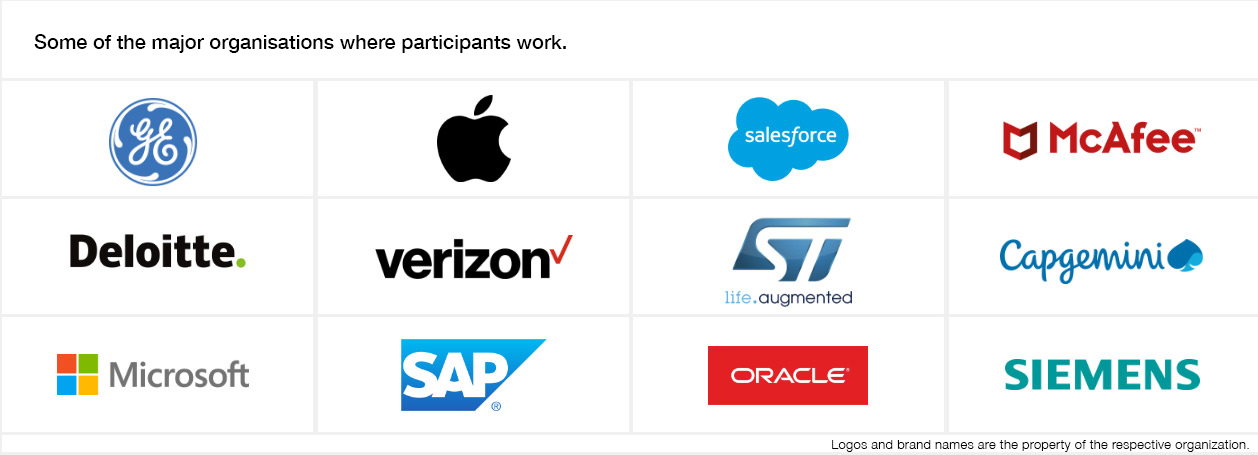
Featured Faculty
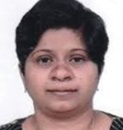
Dr. Lucy J. Gudino

Dr. Y V K Ravi Kumar
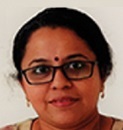
Prof. Anita Ramachandran

Dr. Ritu Arora

Dr. G. Venkiteswaran
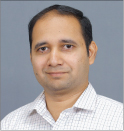
Prof. Manoj Kakade

Prof. Chandra Shekar R K

Prof. Vamsidhar Ambatipudi
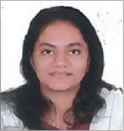
Prof. Febin A Vahab
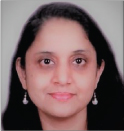
Dr. Chetana

Dr. Saikishor Jangiti
.png)
Prof. Nishit Narang

Prof. Srinath Naidu
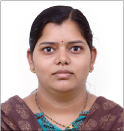
Prof. Swapna Kulkarni
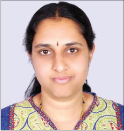
Prof. Rekha Anandrao
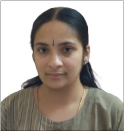
Prof. Rajavadhana

Prof. Akanksha Bharadwaj

Prof. Kranthi Kumar Palavalasa

Prof. Seetha Parameswaran
123x130.jpg)
Prof. Vineet Garg

Prof. Ankur Pachauri

Prof. Mohammad Saleem Bagewadi
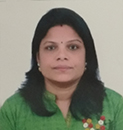
Prof. Vijayalakshmi Anand
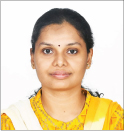
Prof. Akshaya Ganesan

Prof. Ramakrishna Dantu

Prof. Sonika Chandrakant Rathi

Prof. Chennupati Rakesh Prasanna

Prof. Ashish Narang
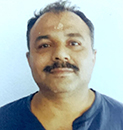
Prof. Rajesh Kumar Tiwary

Prof. K. Gopala Krishna

Dr. Shree Prasad M.
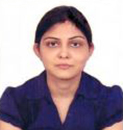
Prof. Swarna Chaudhary

Prof. Preeti N G

Dr. Jyotsana Grover
FAQs
M.Tech. Cloud Computing is a BITS Pilani Work Integrated Learning Programme (WILP). BITS Pilani Work Integrated Learning Programmes are UGC approved.
This programme is designed for working professionals. At the time of submitting the application, candidates must be employed in another organization. Professionals who are owners of a registered business are also eligible to apply. For detailed information, including academic background, work experience, etc. refer to the programme eligibility criteria.
Contact classes are conducted over a technology enabled platform. These classes can be attended via the internet using a computer from any location. These contact classes offer similar levels of interactivity as regular classrooms at the BITS Pilani campus. These are conducted usually over weekends or after business hours for a total of 7-8 hours per week. If you miss a lecture, you can also access the recorded lecture on the internet.
Upon successful completion of the programme, participants will receive a degree certificate from BITS Pilani.
Each semester has a Mid-semester Exam and a Comprehensive Exam for each course, which are conducted over weekends. Students will need to appear in-person to take these exams at exams centers in the following locations:
India Centers:
South Zone: Bangalore, Chennai, Hyderabad, Vijayawada, Visakhapatnam, Kochi, Thiruvananthapuram and Coimbatore.
North Zone: Delhi NCR, Jaipur, Chandigadh, Lucknow and Pilani.
West Zone: Mumbai, Pune, Goa, Ahmedabad, Indore and Nagpur.
East Zone: Kolkata, Bhubaneshwar, Guwahati and Jamshedpur.
International Centers: Dubai
In case students are unable to take an exam due to work-related commitments, there is also a provision of appearing for Make-up Exams.
The programme provides a high degree of interactivity between students and the faculty members and programme instructors. Q&A sessions during the contact classes (which you can attend from anywhere over a technology enabled platform) allow participants to pose questions to the faculty members, and seek guidance through voice and chat. Further interaction with faculty members and peers is enabled through the e-learning portal, by using discussion forums and message boards.
The programme features high usage of experiential learn components such as Simulations, Virtual Labs, and Remote Labs, in order to mimic the on-campus experience.
Participants will be given access to portals, that will allow them to access both cloud-based labs, as well as Campus-based physical labs. Using leading industry-recognised Software tools, Programming languages, and Simulation software, participants will be able to perform experiments and run simulations to advance their knowledge
Candidates applying to the programmes must choose a Mentor, who will monitor the academic progress of the candidate, and act as an advisor & coach for successful completion of the programme. Candidates should ideally choose the immediate supervisor or another senior person from the same organisation. In case a suitable mentor is not available in the same organisation, a candidate could approach a senior person in another organisation who has the required qualifications. For detailed information, please refer to the programme brochure.
Kindly note that BITS Pilani does not assign Mentors to programme participants.
The programme is designed for working professionals, and participants are not required to travel to a BITS campus. However, certain programme offer Campus Immersion Modules such as workshops or seminars, which are highly recommended but not mandatory.


.png)
.png)
.png)
.png)
.png)
.png)
.png)
.png)
.png)
.png)
